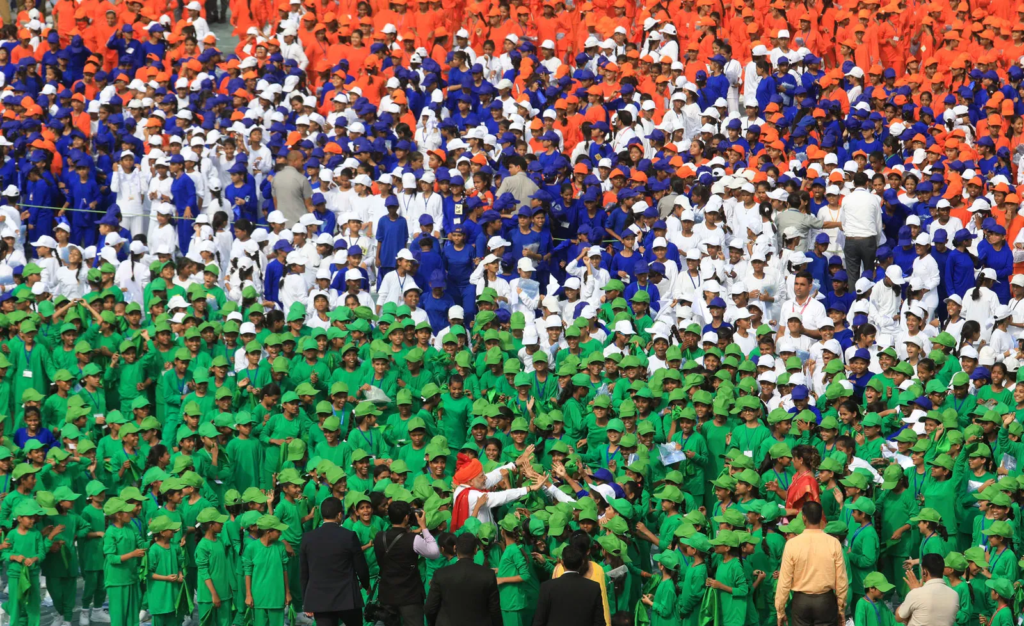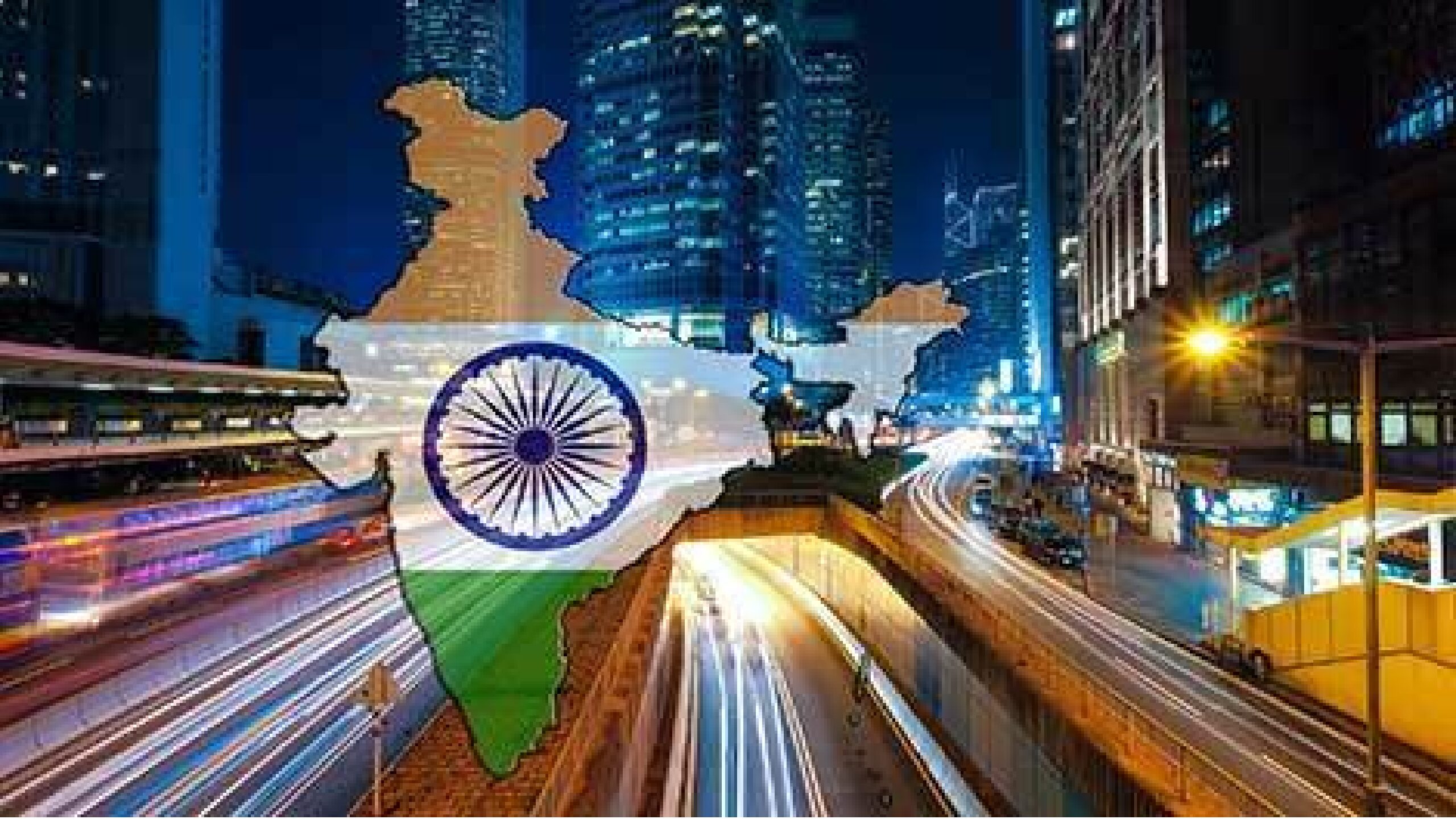Samudrala VK
Amidst much pomp and show, on the 15th of this month, India celebrated its 75th independence day anniversary. From a baby-nation struggling to stand on its own feet in 1947 to a matured country in the present times, India’s post-independent journey is becoming albeit with numerous flaws. There is no best time than now to assess its track record in social, economic, political and other spheres through an impartial lens.

Amongst all the freedom struggles in the world, India’s struggle for independence stands out due to its peculiar characteristics. On the one hand, it fought against the imperial ghost – the British and on the other hand, it had to neutralize the ingrown countervailing forces like communalism, fundamentalism, casteism, feudalism and so forth. By and large, it wasn’t just a struggle to attain political freedom from the Englishmen but also a movement to transform the then existing Indian society from an immovable and fractured one to a dynamic, unified and modern state. Sadly, the spirit and zeal for an all-round revolution were lost in the subsequent times after the attainment of independence. Freedom was confined merely to the political arena leaving out other freedoms – economic, social and cultural, without which the political freedom is meaningless. Contrary to popular perception, it was economics that served as a foundation upon which the movement for political independence was designed and carried out and not the other way round. Economic factors arouse as a result of exploitative policies of British India, complemented by other social forces like the spread of western education, animosity towards long existing stereotypes and other primitive and feudal practices, brewed the necessity for political action.
The then political thinkers, incidentally, who happened to be political leaders too, tried to bank on the freedom movement to bring much-needed change in the society. It is important to understand that it is not something an overnight phenomenon that occurs. It requires a thread of generations to achieve an India that forefathers had aspired for. They left the responsibility of attaining the economic, social and cultural freedom to the succeeding generations.
Classless and casteless society
Definitely, the India out there is not what the forefathers of this great nation dreamt of. In fact, it is the opposite. They envisioned an India where an individual is freed from discrimination based on religion, caste, gender, region and other factors. In their view, the post-independent state (political authority) should play the pivotal role in transforming the lives of its people rather than acting as a tool of repression or a mere replacement for the white man’s regime. When one casts a light on the present day politics in the country, it is no brainer to understand why political thinkers like M.N. Roy, Gandhi, J.P. Narayan and others have gone to an extent of proposing stateless, classless and partyless society. At the same time, one cannot restrain himself/herself from praising the aforementioned leaders for their farsightedness and sagacious analysis on how democracy, if not maintained well, turns into a rule by privileged sections. Against the foresight of the founding fathers, caste system is still prevailing and much to the despair of their souls, it has become rigid and all-pervasive. Indian society has become more segregated than ever on the basis of caste, thanks to caste based politics. The quagmire of caste is trapping the literates and illiterates alike into it. Scientific temper among the populace is at all-time low. Elections appear to be the means for short-term gains. Caste, religion, money and muscle power replaced ideological factor in elections. Though there is no dearth of constitutional provisions and laws that are intended to increase the involvement of people in policy making, participatory democracy is far from a reality. The decline of social capital, complemented by individualism, is going against the very nature of republic.
Wealth concentration
At a time when crony-capitalism has become the order of the day and irrational and mindless rightist philosophy is shaking the very fundamentals of the nation upon which it was formed, it is in the well-being and the long term interest of the society to renew the values taught by the founding fathers. Chest thumping does not serve any purpose and isn’t helpful in addressing the needs of populace unless it is augmented by a concrete plan of action.
Basic necessities like shelter, education, health and food are still a distant dream for many an Indian. Raising inflation is putting the survival of poor man into question. Economic policies like privatization and liberalisation, in the pretext of managerial efficiency, are accelerating the phenomenon of wealth concentration, thereby, increasing the economical inequalities. It is the responsibility of any political authority to deliver decent living conditions to its citizens. Sadly, the current ruling dispensation is sweeping its obligations and gaffes under the carpet. The narrative what it is expounding under the token of nationalism is proving detrimental to the well-being of the nation. Majoritarianism at the cost of cultural diversity is splitting up the social fabric that has been weaved and bound together for centuries. It is important to realise that jingoism does more harm than good in the long run.
Freedom of expression
Under the present day regime, dissent is the worst sin that one can commit. Consistent repression of the freedom of expression by using draconian laws leads to an atmosphere of constant fear and trepidation among the intelligentsia. Boycotting and trolling those who point out the irregularities and labelling them as anti-nationals is creating a regressive atmosphere. The constitutional spirit has taken a backseat and chauvinism has come to the fore.
Unholy synthesis
It is interesting to mention here that the parental organization of BJP (Bharatiya Janata Party), the ruling party at the centre, RSS (Rashtriya Swayamsevak Sangh), had nothing on its name to boast for its role in the independence movement. As a matter of fact, it acted as a counter-productive force by joining hands with British throughout the struggle. The British raj of India used it and other extremist forces as elements to create fractures in Indian society. It is ironical to see the one that kowtowed to the diktats of the British Empire back then has now become the flag-bearer of nationalism and Indianness. The ruling party at the centre is trying to drift the attention of people away from the real issues by using a nefarious scheme of blending politics with religion. It is this unholy synthesis that is taking a toll not only on the hoi polloi but also the democratic institutions of the state. It’s high time we did something about the issues persisting in the society and fulfilled the dreams of the freedom fighters at least by centennial celebrations.
Author:-
Samudrala VK
Columnist on international affairs and Trade
Director, Samudrala VK IAS Academy.




